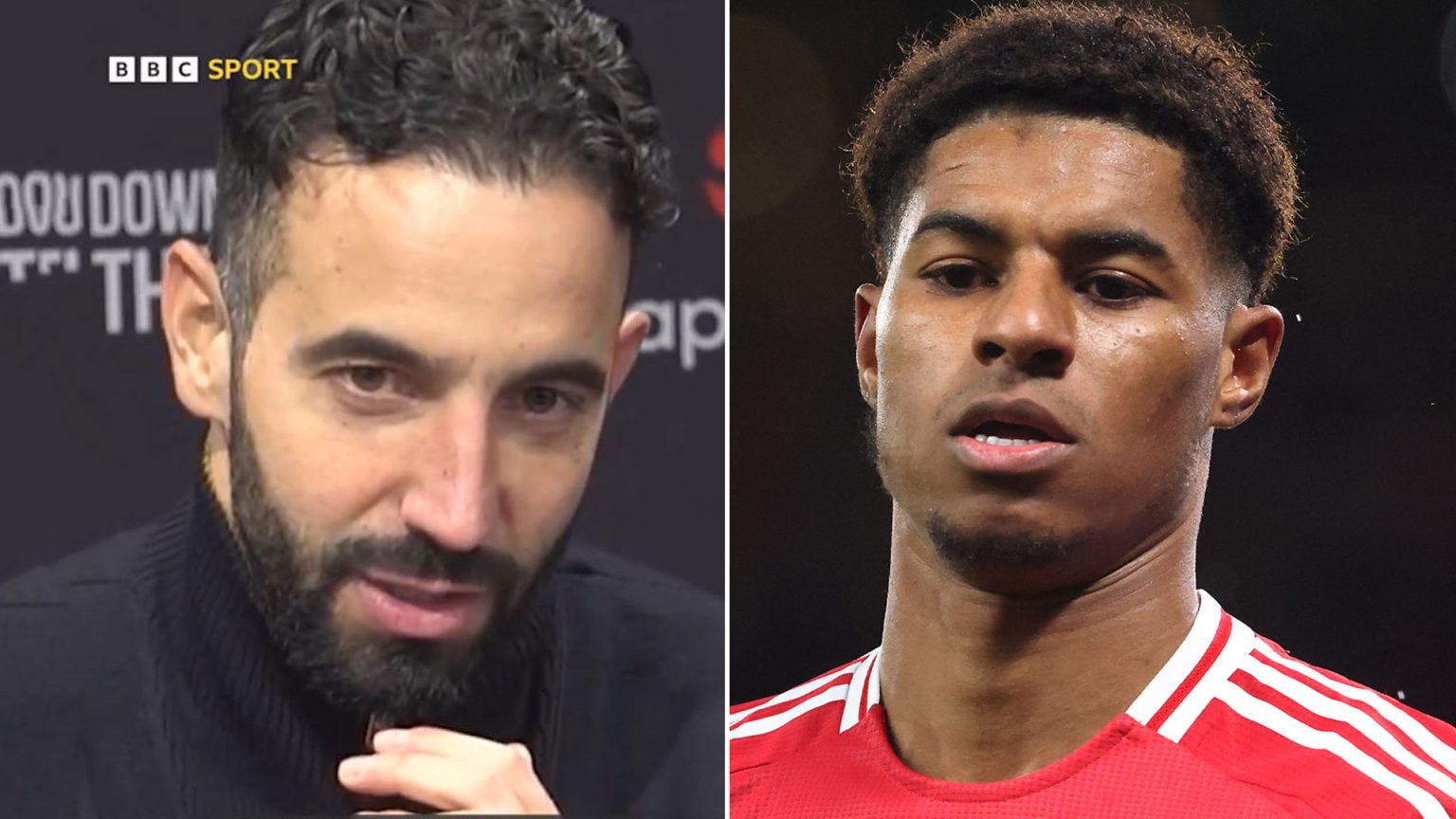Marcus Rashford finds himself at a pivotal juncture in his career, a crossroads where the allure of financial security clashes with the burning desire for professional fulfillment. His recent declaration of being “ready for a new challenge,” a startling revelation after two decades under the Manchester United banner, has drastically shifted the narrative surrounding his future. The declaration suggests a growing rift between Rashford and the club, a fissure that seemingly deepened with the arrival of new manager, Ruben Amorim. While Rashford’s talent is undeniable, his fit within Amorim’s tactical framework appears questionable, further fueling speculation about an imminent departure. The question now becomes, what does Marcus Rashford truly prioritize: the substantial paycheck or the resurgence of his career?
The financial aspect of Rashford’s decision presents a complex equation. While his current £325,000 per week contract at Manchester United positions him among the highest-paid players in the world, replicating that figure elsewhere might prove challenging. The Premier League, despite its financial clout, seems unlikely to offer a comparable package, especially given the diminished transfer fee United could command following Rashford’s public expression of discontent. European giants like Real Madrid and Barcelona, while attractive destinations, face their own financial constraints, leaving Paris Saint-Germain as a potential suitor. However, a move to Ligue 1, often criticized for its lack of competitiveness, could be perceived as a step down. The financially lucrative Saudi Pro League, a burgeoning destination for established stars, represents another option, but its sporting significance pales in comparison to Europe’s top leagues. Thus, the pursuit of financial parity might necessitate a compromise on competitive ambition.
Beyond the monetary considerations, Rashford’s career trajectory hinges on finding a club that allows him to consistently compete for major honors and showcase his undeniable talent on a grand stage. The Premier League, with its global reach and intense competition, remains the ideal platform for achieving these objectives. And within this landscape, one club emerges as a particularly intriguing fit: Arsenal. The Gunners, under the astute guidance of Mikel Arteta, are a team on the rise, yet they lack a consistent goalscorer, a void that Rashford could potentially fill.
Arsenal’s attacking structure presents a compelling case for Rashford’s integration. Their current striking options, Gabriel Jesus and Kai Havertz, haven’t fully delivered the desired goal-scoring output, while the left-wing position, occupied by Gabriel Martinelli, has become a point of contention. Rashford’s versatility, his ability to operate both centrally and on the left flank, aligns perfectly with Arsenal’s needs, offering a potential solution to their attacking imbalances. His presence could inject much-needed firepower upfront while simultaneously adding width and dynamism to their left-sided attacks.
The move to Arsenal, though seemingly unconventional given the historical rivalry between the two clubs, carries the potential to revitalize Rashford’s career. Under Arteta’s tutelage, known for his player development prowess, Rashford could rediscover the form that once made him one of the most exciting prospects in English football. The opportunity to contribute to a title-challenging side, playing alongside creative talents like Martin Odegaard and Bukayo Saka, could reignite his passion and unlock his full potential.
Beyond the individual benefits, Rashford’s transfer to Arsenal could also serve as a powerful statement to Amorim and Manchester United. By thriving at a rival club, he would demonstrate the value he brings to a team, a value that was seemingly overlooked at Old Trafford. This narrative of redemption, of a player proving his doubters wrong, adds another layer of intrigue to the potential move. Ultimately, the decision rests with Rashford. Will he chase the financial security of a lucrative contract, or will he prioritize the opportunity to reignite his career at a club that values his talents and provides a platform for him to reach his full potential? The answer will not only shape his own future but also potentially alter the landscape of the Premier League.


